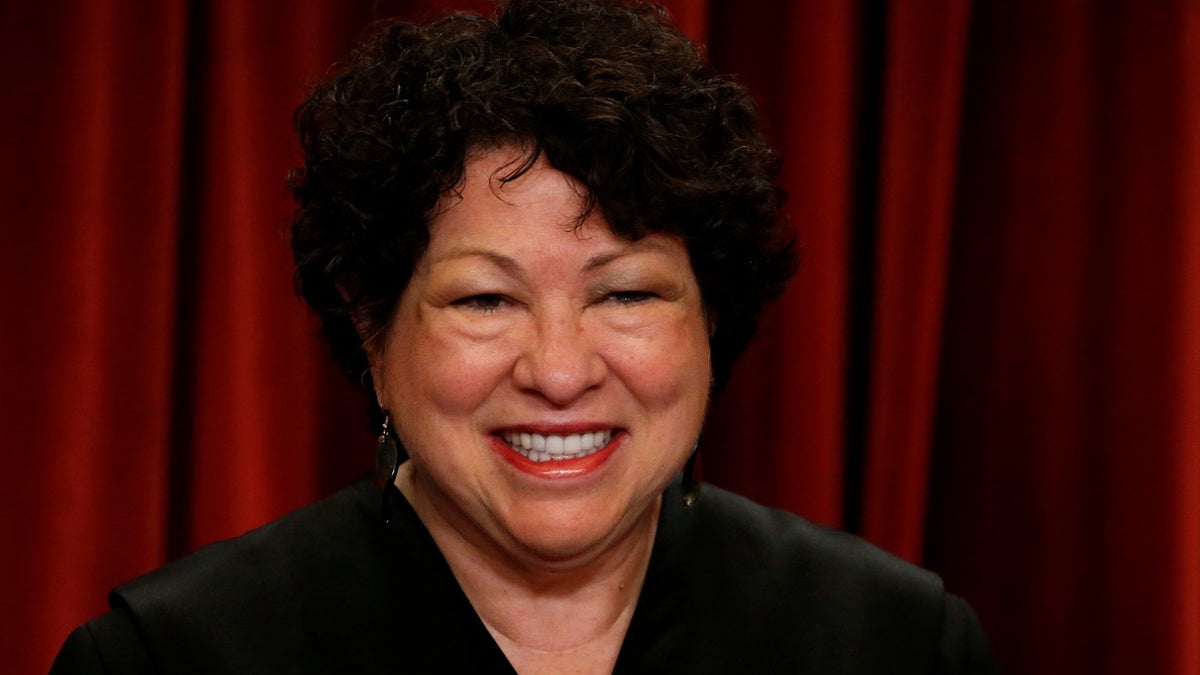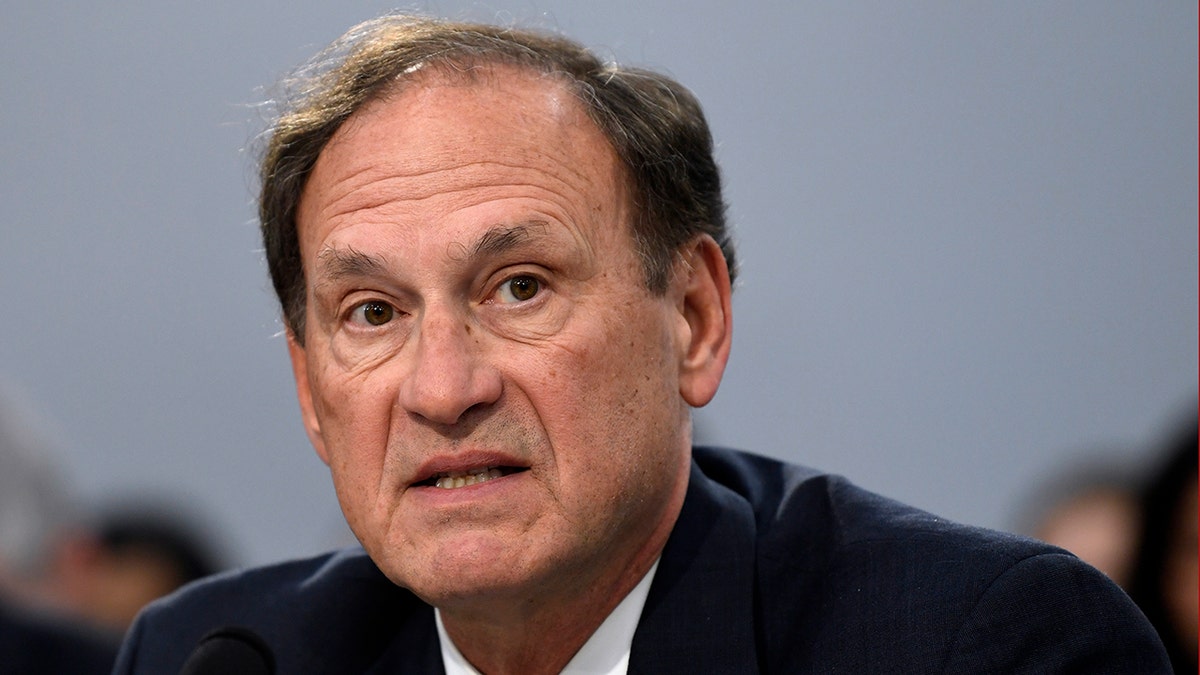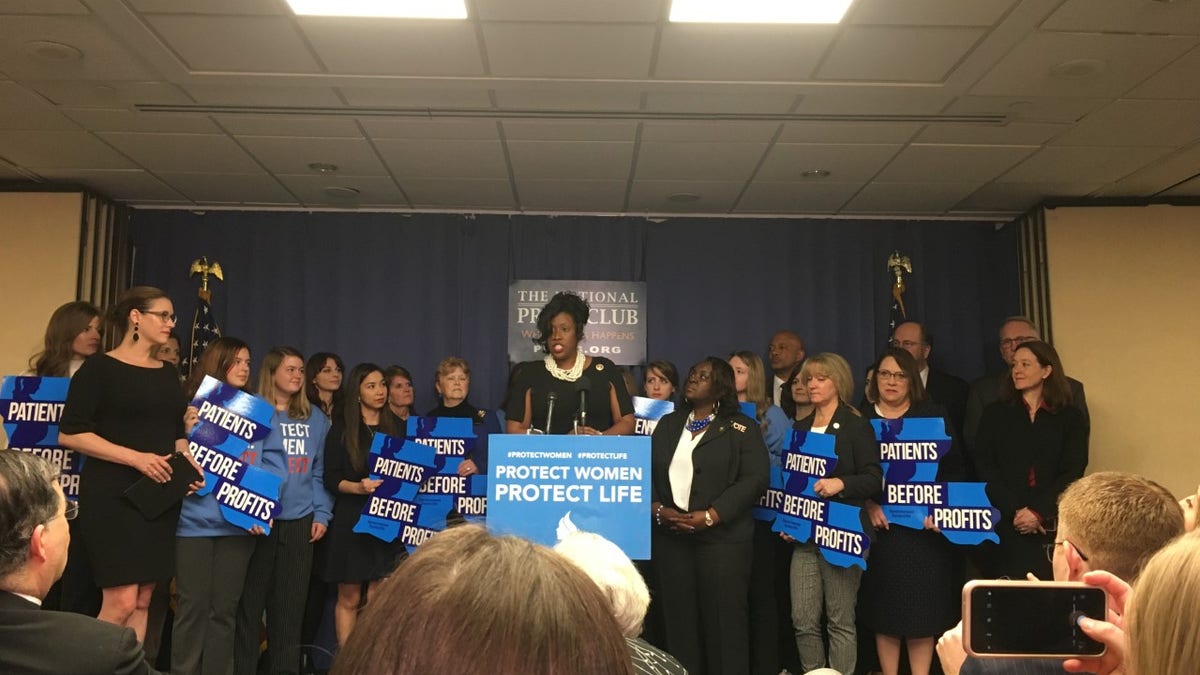Fox News Flash top headlines for March 4
Fox News Flash top headlines are here. Check out what's clicking on Foxnews.com.
The Supreme Court justices appeared closely divided Wednesday as they heard a major abortion case for the first time since the addition of Trump nominees Justice Neil Gorsuch and Justice Brett Kavanaugh -- with the liberal justices seemingly suspicious of the Louisiana abortion law at issue.
Justices Ruth Bader Ginsburg, Sonia Sotomayor, Stephen Breyer and Elena Kagan each challenged the lawyers arguing Louisiana's case throughout the arguments while indirectly sparring with their more conservative colleagues through the questions they asked.
"Are you taking the position that there is no woman in Louisiana who doesn't feel burdened by this law?" Sotomayor incredulously asked a representative from the Trump administration, who was arguing on behalf of Louisiana, when he appeared to stumble over his point.

Justice Sonia Sotomayor regularly pushed back against arguments made by Louisiana Solicitor General Liz Murrill. (Reuters/Jonathan Ernst)
The case, June Medical Services v. Russo, is part of a larger effort by red states to pass laws regulating abortion to test how supportive the new justices will be of precedents like Roe v. Wade and Planned Parenthood v. Casey.
The dispute involves a Louisiana law that requires abortion doctors to have admitting privileges at a nearby hospital in case a patient experiences complications during or after a procedure. Those backing the law argue that it regulates abortion providers similarly to how other medical providers are regulated by the state while also ensuring doctors are competent. Opponents say that it is targeted at abortion providers with the goal of shutting them down, citing a recent case out of Texas in which the Supreme Court invalidated a very similar law.
"What sense does the 30-mile limit make," Ginsburg asked, "considering that -- certainly for medication abortion s and for the overwhelming number of abortions, if a woman has a problem, it will be her local hospital ... she will need to go to for care."
Breyer consistently challenged the lawyer for Louisiana, in one exchange asking her to point to what she thought was the best part of her case so he could study it closely and attempt to see her point of view.
"Your argument is that the Fifth Circuit was right to overturn a fact-finding, and, with Doe 3, a credibility finding of the district court," Breyer said. "Now you have to support that. And I want to know in respect to which [abortion doctor involved in the case] you feel it's the strongest support for you?"
Kagan pushed back on Louisiana's lawyer as well, saying, "It seems that [a major precedent for this case] precludes you from making this credentialing argument, doesn't it?"

FILE - In this March 7, 2019, file photo, Supreme Court Justice Samuel Alito testifies before House Appropriations Committee on Capitol Hill in Washington. (AP Photo/Susan Walsh, File)
WHO ARE THE 9 JUSTICES OF THE SUPREME COURT?
Justice Samuel Alito was nearly as combative as the liberal justices, but in defense of some of Louisiana's arguments.
Chief Justice John Roberts and Justice Brett Kavanaugh wondered whether the state law would be an "undue burden" to a woman's right, if few or any doctors would have problems getting admitting privileges.
"Assume all the doctors who currently perform abortions can obtain admitting privileges, could you say that the law still imposes an undue burden, even if there were no effect?" asked Kavanaugh.
Roberts suggested other states may have different standards that might be constitutional.
Justice Neil Gorsuch did not speak during the oral arguments and neither did Justice Clarence Thomas -- as is typical for him.
Many abortion advocates are concerned that an adverse ruling for June Medical Services will start a chain reaction that will significantly hinder abortion rights nationwide.
"Access to abortion is hanging by a thread in this country, and this case is what could snap that thread," Planned Parenthood Federation of America acting President and CEO Alexis McGill Johnson said of the case when the Supreme Court agreed to hear it in October.
TRUMP JUDICIAL NOMINEE REPRESENTS LOUISIANA IN HIGH-PROFILE ABORTION CASE
"There’s only one reason the court would not strike down the Louisiana law and that is because Justice Kennedy, who voted to protect abortion access just three years ago, has been replaced with Justice Kavanaugh," she continued.
Proponents of the law, including the pro-life Susan B. Anthony List (SBA List) say that Louisiana's law is tailored to deal with an alleged unique history of safety issues at Louisiana abortion clinics.
"Louisiana’s abortion businesses have a long and well-documented history of serious health and safety violations that have systematically placed women and girls at risk, and the state has an obligation to regulate these businesses just as they regulate all other ambulatory surgical centers," SBA List President of Government Affairs Marilyn Musgrave said in a statement. "It is disingenuous for anyone to claim they care about women and yet actively work to lower the bar on women’s health and safety."
June Medical services argues that if the Supreme Court sides with Louisiana it would be completely reversing itself from its ruling on the Texas law.
"To begin, the State asks the Court to do something it has never done before: Uphold a state law identical to one that the court recently invalidated by distinguishing the prior case on its 'facts' and 'regulatory context,'" June Medical Services said in a brief on the case.
June Medical Services also says the law plainly presents an "undue burden" on women's right to abortion because, it argues, there would only be one abortion doctor left to do the procedure in the state. That burden, it also says, is totally without benefit, citing medical organizations which say there is no real health benefit to an abortion doctor having admitting privileges.
Louisiana, however, says that the law and its effects are unique to the state, and that the Supreme Court should side with the Fifth Circuit Court of Appeals in upholding it.
The state also argues that some abortion doctors have not made a good-faith effort to obtain admitting privileges at a local hospital -- that they are instead slow-walking the process to bolster their argument that the law creates an undue burden to women seeking abortions.
'If they have difficulty finding qualified providers for this service that they provide, that is not the problem, or the concern of the state. The state's concern is in the health and safety of women. And for the abortion industry to come and complain to the regulators and say 'gee whiz, we can't find qualified doctors who can obtain omitting privileges to a hospital,' is not a sufficient reason to strike down a common-sense constitutional regulation.'
DIVIDED SUPREME COURT TAKES ON EXECUTIVE POWER AND LIMITS OF INDEPENDENT FEDERAL AGENCY AUTHORITY
Even if the law makes getting an abortion a little more difficult, that is a venerable trade-off for what the Fifth Circuit said "performs a real, previously unaddressed credentialing function that promotes the wellbeing of women seeking abortion," supporters say.
"This case really is legitimately about the health and safety of women," Rep. Mike Johnson, R-La., who worked on this case at the district court level before being elected to Congress, told Fox News. "If they have difficulty finding qualified providers for this service that they provide, that is not the problem, or the concern of the state. The state's concern is in the health and safety of women. And for the abortion industry to come and complain to the regulators and say gee whiz, we can't find qualified doctors who can obtain omitting privileges to a hospital, is not a sufficient reason to strike down a common-sense constitutional regulation."
Backers of the law have also argued it is not a politically motivated effort to shut down women's rights as it has been characterized by the left. Democratic Louisiana state Senator Katrina Jackson, who was a state representative when she sponsored the Louisiana law, said Tuesday that the admitting privileges law was one primarily pushed by women.
"This is the thing how this bill came about," she said. "Look at it. From a female legislator. I was asked to bring this bill by women advocates who had suffered from abortions. Women attorneys helped draft this bill. And a woman solicitor general will argue this bill before the Supreme Court."

Democratic Louisiana state Sen. Katrina Jackson was the original sponsor of the law requiring doctors hold admitting privileges at a nearby hospital. (Tyler Olson/Fox News)
The case could turn on the issue of third-party standing, meaning one person's right to bring a court case on behalf of somebody else. June Medical Services is bringing its case on behalf of its patients' Fourteenth Amendment substantive due process rights, which it says should prevent them from facing significant obstacles to getting an abortion.
Standing was a major issue during oral arguments Wednesday, with Alito going back and forth with some of the liberal justices on whether or not June Medical Services even has a right to bring the case. Alito said "that's amazing" twice in response to arguments that June did have third-party standing despite challenging a health regulation meant to protect women from complications caused by abortion providers.
"A party should not be able to [sue] ostensibly to protect the rights of other people" if that party has interests that are at odds with the people whose rights it claims to be protecting," Alito said.
The lawyer for June argued that because the Louisiana abortion law directly regulates the abortion clinics that they do have standing to sue on behalf of the women they serve.
Breyer said that to prevent the abortion providers from suing would "require directly or indirectly overturning eight cases of this court."
Federal courts usually do not allow third parties to bring cases unless there is a significant connection between the party bringing the case and the person whose rights are allegedly being violated, as well as an obstacle preventing the person whose rights are supposedly at stake from bringing a case. Federal courts have allowed abortion providers to bring such cases before, arguing that their interests are aligned enough with those of their patients.
But Louisiana says because its law is not a general restriction on abortion but instead a health regulation, that the interests of the abortion clinics are actually in conflict with their patients -- abortion clinics want to make as much money as possible with as little state regulation as possible while patients have a vested interest in the procedure being safe, it says.
CLICK HERE TO GET THE FOX NEWS APP
If the justices rule there is no standing for June Medical Services to bring the case, it is likely to turn it back without even ruling on the merits, letting the Louisiana law take full effect.
Either way, the case before the justices has the potential to set the tone for abortion litigation and legislation for the foreseeable future, as pro-choice advocates seek to protect and expand abortion access while many pro-life advocates see themselves as playing a long game with the goal of eventually getting the Supreme Court to overturn Roe v. Wade.
"This case could decide the future of abortion access in this country," said Planned Parenthood Federation of America, which was among a number of abortion rights groups that rallied outside the high court.













































